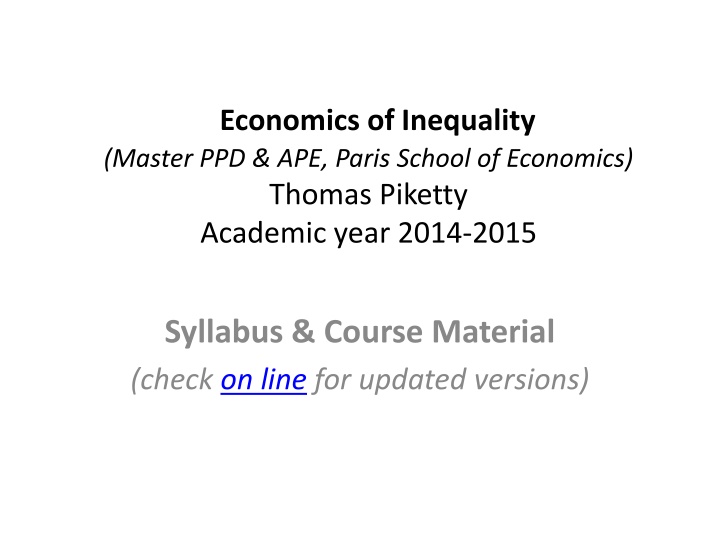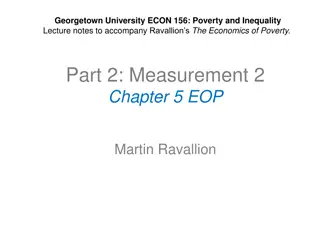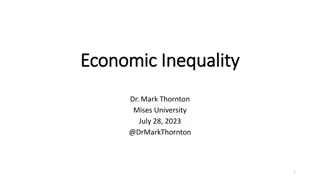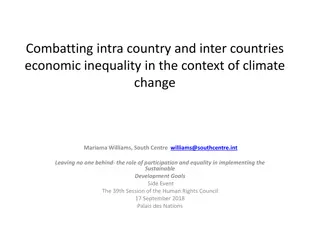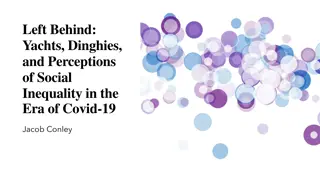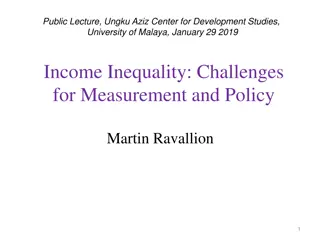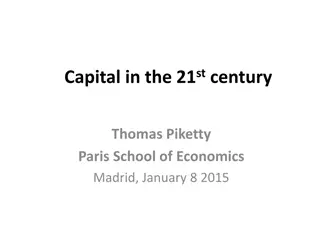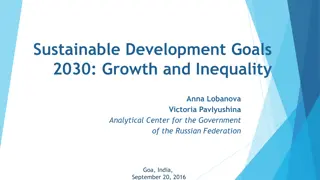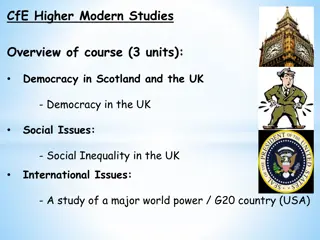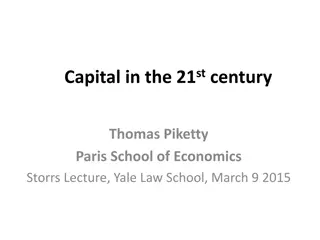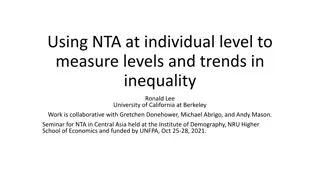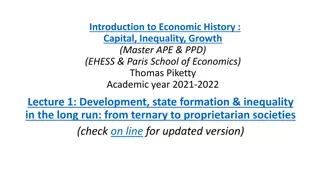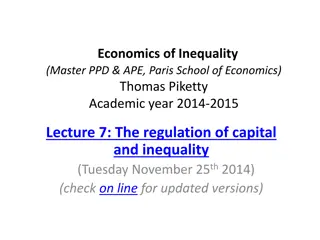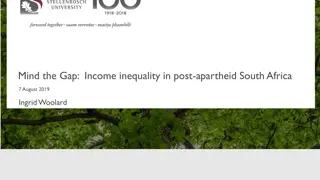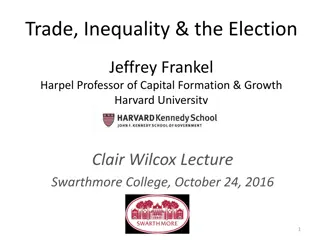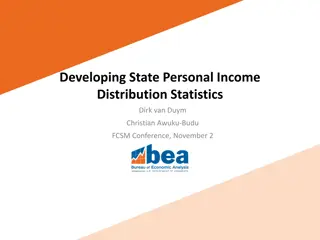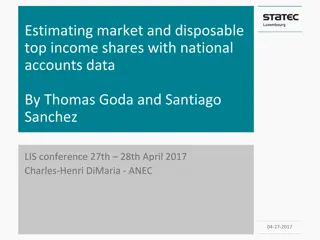Economics of Inequality at Paris School of Economics
This course explores income and wealth distribution trends, impacts on economic growth, and the relationship with financial crises. It covers research by Thomas Piketty and emphasizes active participation in lectures and exams. Key references include Piketty's works like "Capital in the 21st Century" and collaborative projects on wealth distribution.
Uploaded on Mar 13, 2025 | 1 Views
Download Presentation

Please find below an Image/Link to download the presentation.
The content on the website is provided AS IS for your information and personal use only. It may not be sold, licensed, or shared on other websites without obtaining consent from the author.If you encounter any issues during the download, it is possible that the publisher has removed the file from their server.
You are allowed to download the files provided on this website for personal or commercial use, subject to the condition that they are used lawfully. All files are the property of their respective owners.
The content on the website is provided AS IS for your information and personal use only. It may not be sold, licensed, or shared on other websites without obtaining consent from the author.
E N D
Presentation Transcript
Economics of Inequality (Master PPD & APE, Paris School of Economics) Thomas Piketty Academic year 2014-2015 Syllabus & Course Material (check on line for updated versions)
Email : piketty@psemail.eu Office hours: Tuesdays 9h-12h, Jourdan B101 Course web page : http://piketty.pse.ens.fr/teaching/10/17 (check on-line for updated versions)
The objective of this course is to present recent research in the area of income and wealth distribution. Issues will include the following. How did income and wealth distributions evolve since the 19thcentury, how can we account for these changes? What was the interaction with the growth and capital accumulation process? Did the recent rise of inequality contribute to the 2008 financial crisis? What will be the impact on income and wealth distributions? Can we properly understand macro issues with representative-agent models?
This course will take for the most part a positive perspective on distributional issues. For references on normative models of optimal redistribution and taxation, see my Public Economics course The course is organized in 8 lectures of 3 hours (7 lectures + 1 exam) To validate the course, students are required : (1) to attend and actively participate to all lectures; (2) to take the exam (past exams are available here)
General references To a large extent the course will follow this book: T. Piketty, Le capital au 21esi cle, Seuil 2013 Capital in the 21stcentury, Harvard University Press 2014 This book is based upon a collective data collection project: F. Alvaredo, T. Atkinson, T. Piketty, E. Saez, The Top 1% in International and Historical Perspective , Journal of Economic Perspectives 2013 (updated series on the World Top Incomes Database (WTID): http://topincomes.parisschoolofeconomics.eu) (soon to become the W2ID: World Wealth & Income Database)
T. Piketty, G. Zucman, Capital is Back: Wealth-Income Ratios in Rich Countries 1700-2010 , QJE 2014, slides, data appendix T. Piketty, G. Zucman, Wealth and Inheritance in the Long- Run , Handbook of Income Distribution, 2014 T. Piketty, E. Saez, Inequality in the long run , Science 2014 G. Bertola, R. Foellmi, J. Zweimuller, Income distribution in macroeconomic models, Princeton University Press, 2006 F. Guvenen, Macroeconomics with Heterogeneity: A Practical Guide , NBER WP 2012
A quick roadmap of the lectures Lecture 1: Income, capital and growth (Tuesday September 23rd2014, 13h45-16h45) (Capital in the 21stcentury, chapters 1-2) Lecture 2: The dynamics of capital/income ratios: private vs public capital (Tuesday September 30th2014, 13h45-16h45) (chap.3-4) Lecture 3: The dynamics of capital/income ratios: =s/g (Tuesday October 7th2014, 13h45-16h45) (chap.5)
Lecture 4: From capital/income ratios to capital shares (Tuesday October 14th2014, 13h45-16h45) (chap. 6) Lecture 5: The structure of inequality: labor income (Tuesday November 4th2014, 13h45-16h45) (chap. 7-9) Lecture 6: The structure of inequality: capital ownership (Tuesday November 18th2014, 13h45-16h45) (chap.10-12) Lecture 7: The regulation of capital and inequality (Tuesday November 25th2014, 13h45-16h45) (chap.13-16) Lecture 8: Exam (Tuesday December 2nd2014, 13h45-16h45)
